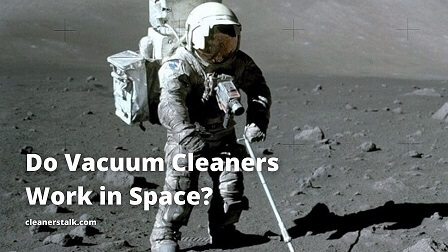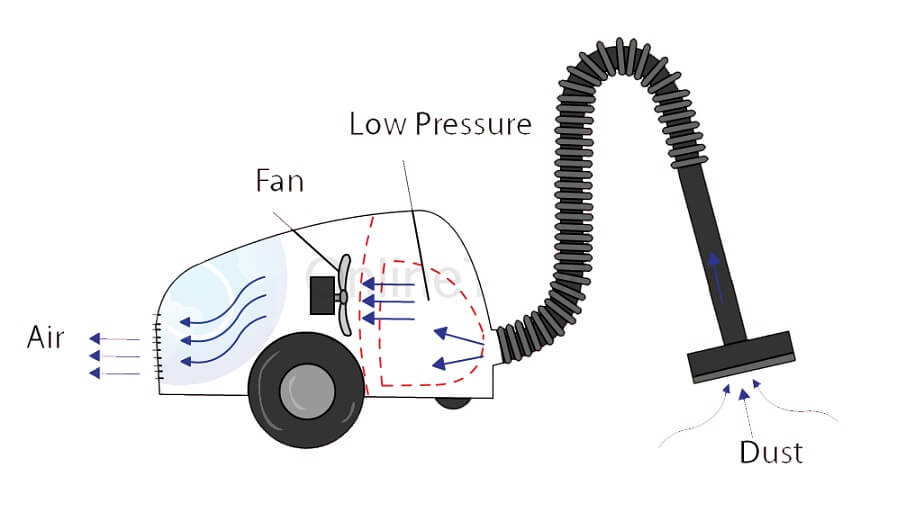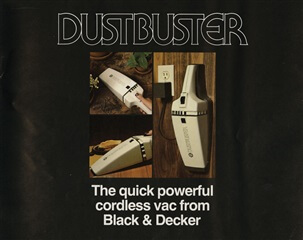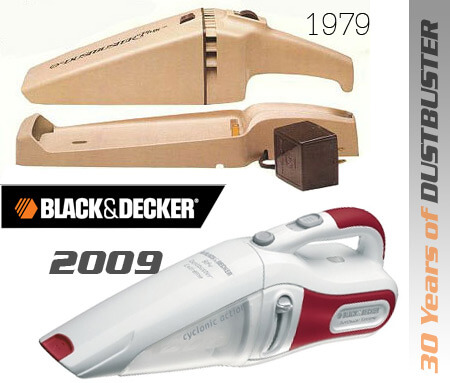
Do Vacuum Cleaners Work in Space?
Cleaners Talk is reader-supported. This post contains affiliate links, we may earn a commission at no additional costs to you. As an Amazon Associate we earn from qualifying purchases.
Ever wondered how astronauts live and work comfortably in space? As with your house, the space station can get dirty and dusty. You would think that an astronaut can simply use a vacuum cleaner to clean up the mess, right? This leads to many wondering if a vacuum cleaner will work in space or not.
Do vacuum cleaners work in space? Vacuum cleaners do not work in space. They work because of the difference in air pressure between the inside and outside of the vacuum cleaner. In space, there is no air, rendering a vacuum cleaner useless. While it can be turned on, the vacuum cleaner will not suck anything.
With that said, however, there is a strong correlation between vacuum cleaners and outer space. Space and vacuum cleaners are more related to each other than you may think, including the origin of the device itself. In this post, let’s explore the question: does a vacuum cleaner work in space or not? Let’s get started.
How Vacuum Cleaners Originated from Space

When many people started using handheld vacuum cleaners to clean their house, little probably saw the connection between their cleaning tool and outer space. However, the same technology that helped Apollo astronauts drill for rock samples on the moon were responsible for the modern-day vacuum cleaner.
Between 1963 and 1972, NASA partnered with Black & Decker Manufacturing Company to create a powerful, yet compact drill that astronauts can use to penetrate hard lunar surfaces. In addition to being lightweight, the drill needed to have an independent power source to be most effective for astronauts to use.
According to NASA, Black & Decker was up to the task and created a battery-powered drill with a magnetized motor. And while the innovative device helped Apollo astronauts successfully return samples from the moon, the technology gave birth to one of the most useful tools on Earth as well.
In 1979, Black & Decker introduced the first mini vacuum cleaner, the DustBuster, to American consumers. It was marketed as a miniature vacuum cleaner that could be used to clean and suck up dust in hard-to-reach places, in the car or around the house. Known for its ease-of-use, it weighs less than 2 pounds.


Using the same design parameters as it did for the lunar drill, Black & Decker developed a long line of tools and equipment, including tools for the automobile, construction, and medical industries. In addition to commercial equipment, the company developed tools for the average consumer as well.
And to think that vacuum cleaners originated from space technology...
Does a Vacuum Cleaner Work in Space?
While modern-day vacuum cleaners originated from moon exploration and sample collection, it does not mean that vacuum cleaners can work in space. However, there is a correlation between vacuums and space. To help you better understand this topic, let’s explore it in detail with the most frequently asked questions.
1. How Strong is Vacuum in Space?
So, how strong is vacuum in space? Vacuum in space has no ‘power’ whatsoever. The vacuum of space doesn’t pull anything nor exert any force at all. While many often associate the word ‘vacuum’ with ‘suction’, vacuums do not suck the air. This is a misconception many are not aware of.
According to Wikipedia, the definition of vacuum is space devoid of matter. Outer space is the closest thing to a perfect vacuum, as it has very low density and pressure. However, no vacuum is truly perfect, not even in interstellar space, where there are still a few hydrogen atoms per cubic meter.
With that said, when anyone says that outer space is a vacuum, it means that outer space is nearly empty. While it can be considered a near-perfect vacuum, there is no such thing as truly empty space. Even the most remote spot in outer space still has gas, dust, radiation, gravity, and a host of other things.
2. Does Suction Work in Space?
It certainly is interesting to entertain the idea of using suction cups to prevent astronauts from drifting into space, doesn’t it? However, instead of suction cups, they use a tether or rope to keep themselves within the vicinity of the spaceship. To avoid being tangled up, why not use a suction cup?
So, does suction work in space? No, suction does not work in space because there is no air. The higher pressured air outside the suction cup pressing down on the lower pressured air inside the suction cup is what creates suction. In space, there is zero air pressure, so suction cups would not stick.
When you stick a suction cup to something, air is squeezed out, creating a pocket of low pressure inside the cup. Suction is then created because the air pressure outside the cup is higher than the air pressure inside the cup. Often, many wet the edge of the suction cup to create a tight seal to prevent air from entering the cup.
You may also like: Do Vacuum Cleaner Bags Contain Fiberglass?
3. Will a Vacuum Cleaner Work in Space?
To circle back on the topic of this article, vacuum cleaners do not work in space because there is no air pressure. Vacuum cleaners work by utilizing the suction created by the higher air pressure outside of the cleaner moving into the lower air pressure inside the cleaner, bringing dust and dirt with it.
The greater the difference in air pressure inside and outside the cleaner, the stronger the vacuum cleaner is. In space, a vacuum cleaner would indeed run, but with no air pressure to move the air, the blades would just spin around to the point where a malfunction of the motor might happen.
When your house gets dusty, the dust settles, allowing you to use a vacuum cleaner to clean it. However, at the International Space Station, the dust does not settle, they float. To prevent the dust from causing problems, high-efficiency filters are installed in the space station for the astronauts to work comfortably.
Bottom Line
And there you go, everything you need to know about: do vacuum cleaners work in space? While you may not be using a vacuum cleaner in space anytime soon, we hope this article provides you with more information about this amazing tool. After all, when it comes to usefulness, vacuum cleaners are out of this world. 🙂
